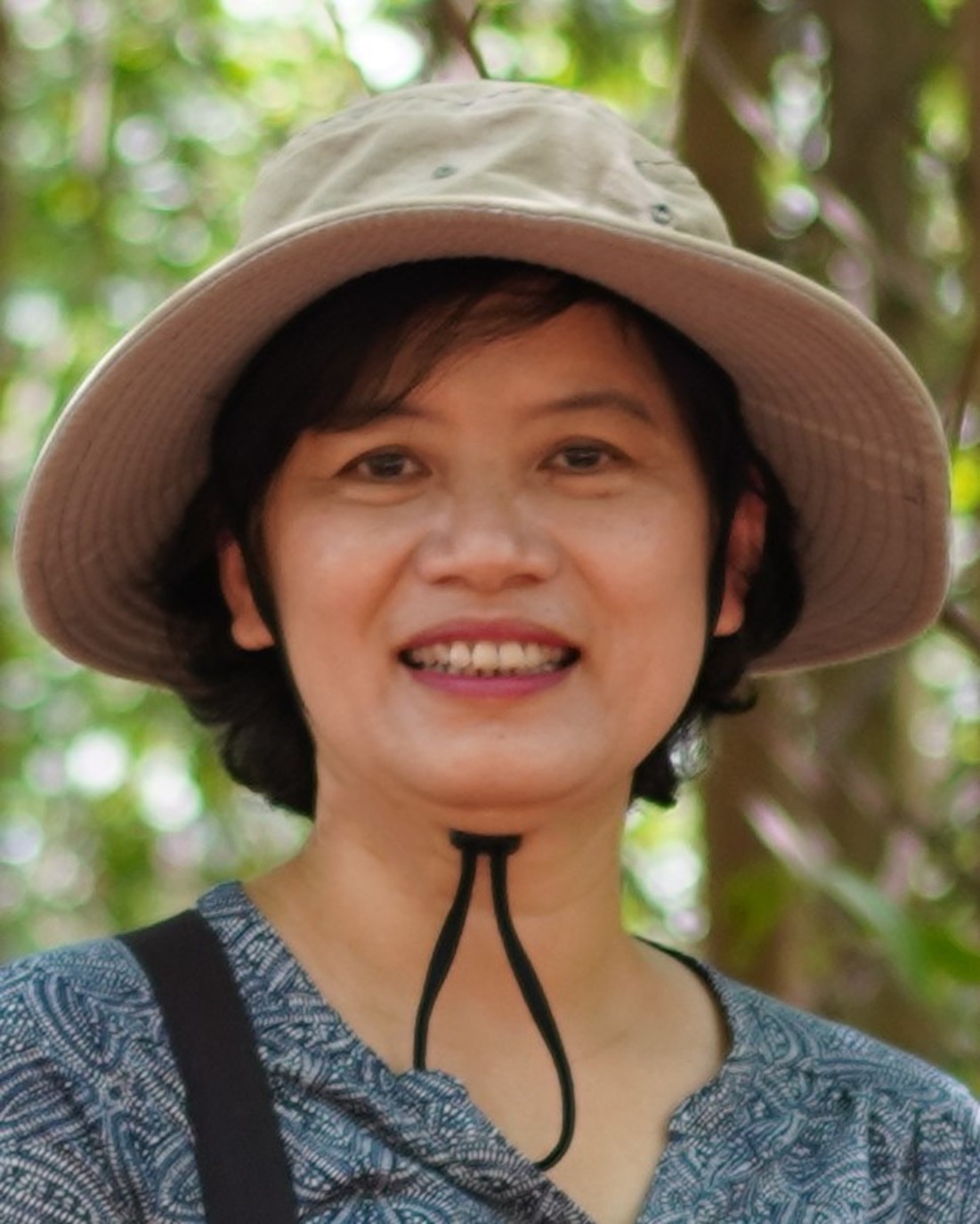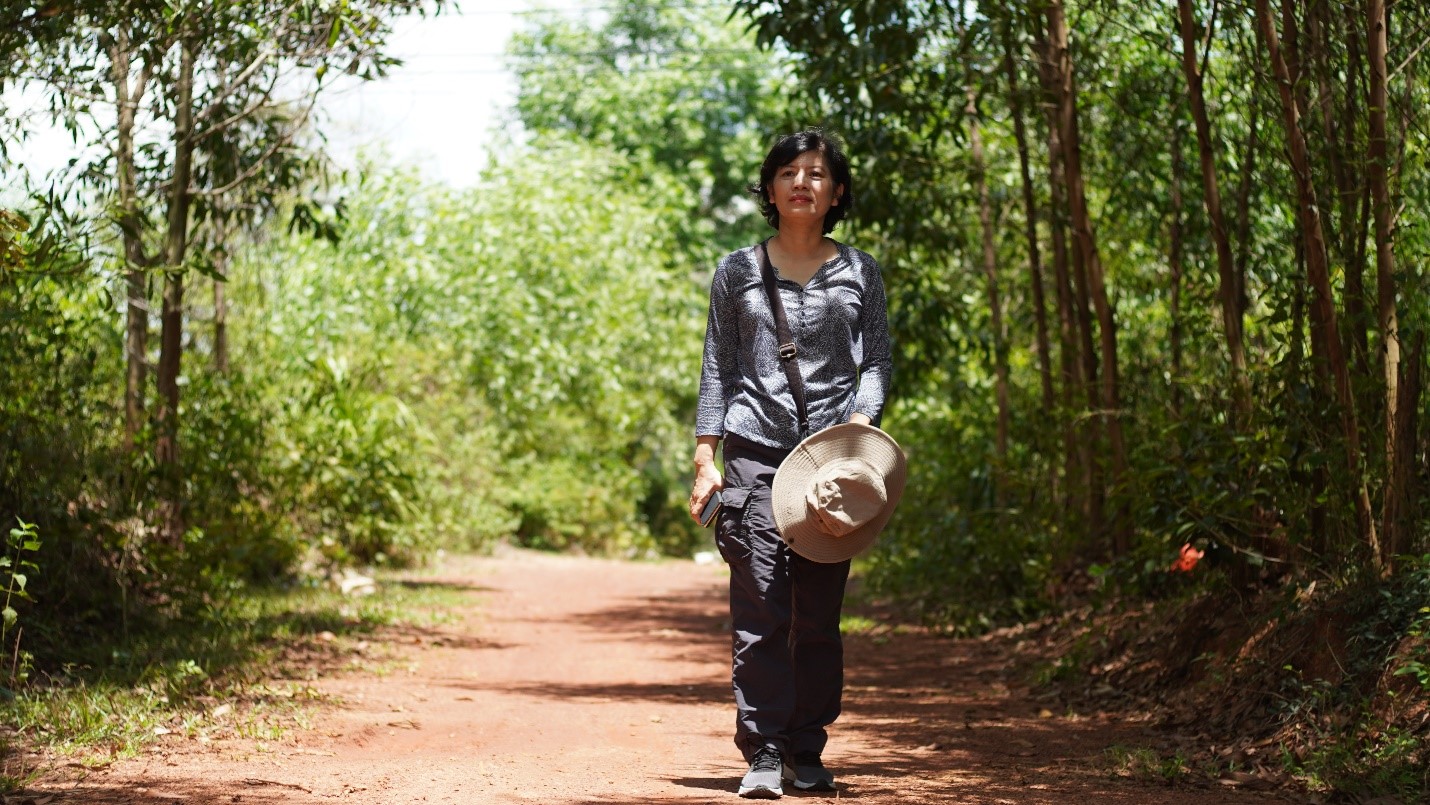President and CEO, Viet Nature
Non-Profit Organisation Management
When Pham Tuan Anh (MPP 2003) enrolled in the LKYSPP two decades ago, her goal was to “join the dots” by integrating her experience and training in various fields, including policy, law, and finance.
“Initially, I dreamt of attending leading universities in the US or UK,” she says. “Then I found out that LKYSPP not only had world-class quality, but also offered an Asian context, which would be very useful for Vietnam.”
She recalls the academic rigour of her LKYSPP experience, particularly the demanding quantitative modules. “It’s not easy, but it shows the high standards of the school. We learned about cost-benefit analysis and did a lot of stakeholder analysis, all of which applies in my work.”
Work, for Tuan Anh, is serving as president and CEO of Viet Nature, an NGO dedicated to halting the loss of biodiversity in Vietnam and contributing to the country’s sustainable development. As a self-described “city girl,” she says her decision to become a nature conservationist surprised many. But it’s a role that she’s fully embraced, and below, she tells us why.

Pham Tuan Anh graduated from Master in Public Policy in 2003.
Development issues have long captivated me—my country has had to rise from the ashes, and it was crucial for us to focus on development and self-reliance.
When I was young, I had a brief experience with the Vietnam war. The US bombed Hanoi and other parts of North Vietnam in the 1970s, and my family evacuated to the suburbs to avoid the bombings. We also endured the US-led embargo period, which was a very challenging time after the war. It was only in the late 1980s that our country began to open up, though we remained under US embargo until 1993. During this time, I witnessed the hardships that the Vietnamese people had to overcome, to not only claim our country and unite it, but also to survive.
Years later, after my LKYSPP studies, I found myself at the crossroads deciding between two job offers. One was for a project working with women on microfinance, and the other was with a conservation organisation called BirdLife. My destiny turned out to be the latter, although many who knew me at the time were surprised. Here I was, a city girl, born and brought up in Hanoi and looking very ‘fragile,’ with training in English studies, law, and accounting. I had no experience in conservation whatsoever. Even at the initial interview, I was asked if I knew of any park or nature reserve in Vietnam, and I gladly answered, “Yes, I know Cuc Phuong National Park… from a song!”
This was during the early 2000s, when the concept of conservation was novel for many Vietnamese. But BirdLife already had an international presence, as well as biologists and conservationists on the team. They were looking for someone who had public policy, finance, and legal expertise, which is how I landed the job.

From BirdLife to Viet Nature
I clearly remember why I chose to join BirdLife. It was a chance to localise a global programme, in a decision-making capacity. The sky would be the limit, and success would depend on my ability to lead and expand the organisation. This appealed to my sense of daring and adventure.
With BirdLife, we were instrumental in the gazettement of nearly 10 protected areas throughout Vietnam, and we discovered four new bird species, as well as rediscovered eight species that were feared to be extinct. We also contributed to conservation planning by identifying important bird areas for Vietnam, most of which were later recognised as key biodiversity areas.
In 2012, we succeeded in transitioning the BirdLife programme into a local NGO called Viet Nature. We had a lot of civil society support, so my role was mainly to take that decision forward. As Viet Nature’s founding president and CEO, the hardest part of my job is making sure that we deliver tangible and sustainable outcomes, bearing in mind that we’re quite a small organisation in terms of our annual budget.
We’ve had outcomes that I’m proud of. In 2020, we secured government backing for the Khe Nuoc Trong forests, to gazette it as a nature reserve. Previously, the forest was safeguarded as a watershed—this protected the trees from logging activities, but there wasn’t a mandate for wildlife conservation. We’ve known for many years that this was a wildlife treasure trove, and through surveying activities like camera trapping, we’ve discovered over 40 globally threatened species in this forest, including rare antelope and the singing gibbon.
For the gazettement to happen, we had to convince local stakeholders that this forest wasn’t a ‘sleeping beauty’ that could be left alone. We helped them to understand that without protections, the area would disappear sooner, rather than later. We also showed them our network and collaboration capabilities, and presented ourselves as a trusted partner in helping them fulfil their conservation responsibilities.
Looking ahead, one of my obsessions is the Vietnam Pheasant Lophura edwardsi. It’s a Critically Endangered bird that is endemic to Vietnam, and historically, it was naturally distributed in only four provinces. It was last seen in the wild in 2000, but fortunately, there is a captive population of about 1,000 pheasants mostly in Europe, America, and Japan. These are the descendants of 28 birds, which were brought to Europe in the 1920s by a French ornithologist named Jean Delacour. Our goal is to bring the Vietnam Pheasant back to its natural home, and to see them live and thrive in the wild by 2030.
The technical and financial challenges are huge, but we believe we have the ingredients for success, because we’re supported by partner organisations including Singapore’s Mandai Nature. What we want to do better is to mobilise our ‘inner strength’ within our country—from domestic businesses to local communities and the public—in order to accelerate the process.
The technical and financial challenges are huge, but we believe we have the ingredients for success, because we’re supported by partner organisations including Singapore’s Mandai Nature. What we want to do better is to mobilise our ‘inner strength’ within our country—from domestic businesses to local communities and the public—in order to accelerate the process.
The Rewards of a Green Career
In sustainable development, we need capable people to lead and make change happen. If I had to choose again, I would still make the decision to work for the environment. And to this day, I’m very grateful to my first bosses who recruited me to BirdLife, and showed me how a career in conservation can be very rewarding on a personal level.
I hope to see more LKYSPP alumni pursue a career in sustainability, because we need successors. It’s hard work, but you won’t view it that way if you enjoy the work. What I love most about my job is that although Viet Nature is small, many of our ideas and achievements are considered pioneering, if not the first of their kind in the country.
But if someone were to ask me for career advice, I wouldn’t assume that my way is the best way. Instead, I would give them all the information that I have, so that they can make an informed decision based on their strengths and passion. For anyone from LKYSPP, remember that everything you've learned here will eventually serve you in one way or another. Trust your instincts, and be confident in your choices!